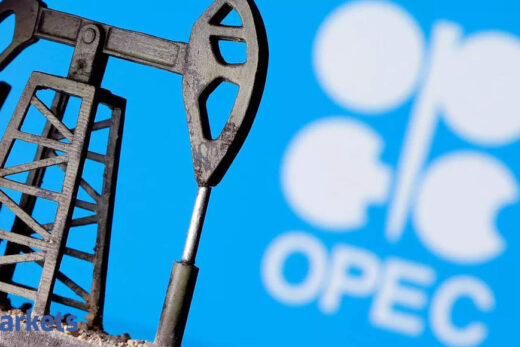The bold move by OPEC+ shows their ability to intervene in the market for much longer and much deeper than previously expected, and they now have minimal fear of US oil production returning due to higher prices. However, Saudi Arabia’s bet on US shale consolidation appears to be a safe one. But looking at how shale players react every time prices move higher, this confidence looks to be a safe one for a while. Currently, shale producers are more focused on cutting capex, returning money to shareholders. As crude prices climb, odds of another shale boom rise. Even with flat capital spending, efforts are underway to maintain or grow production at low cost. If players stay on this course, the biggest beneficiary would be OPEC+, but the If is still too ambiguous as higher prices can be tempted for shale to bring back production, thus creating more problems for Saudi Arabia and Russia. A look at OPEC’s production last month illustrates the extent that Saudi Arabia is prepared to drive the cuts. Saudi’s cuts of 930,000 bpd almost single-handedly offset increases by most other member states.
 ET CONTRIBUTORS
ET CONTRIBUTORSRecent OPEC report indicated that crude demand is likely to remain below 2019 levels this year despite a substantial YoY uptick in consumption compared to 2020. Global oil demand is likely to grow by 5.6Mbpd after collapsing by an average of 9.6Mbdp the previous year, while non-OPEC supply is likely to grow 1mbpd after falling 2.6Mbpd in 2020. Transport sector weakness still remains in the market and can put the enthusiasm of speedy recovery into question. However, summer holiday booking demand in some countries hints at the extent of pent-up demand for travel amid a widespread increase in savings during the pandemic, meaning that second-half consumption may be set to grow substantially.
OPEC leaders are somewhere gambling on the prospects of the future of shale as consolidation looks like an immediate future for players in the US on account of the need to give back returns to shareholders in place of more capital expenditure to drill more oil. Saudi Arabia is somewhere overconfident about shale as data shows that the number of rigs drilling for oil in the United States has already risen to 309, up from a low of just 172 last August, though it is still well below 678 at the same point last year.
 ET CONTRIBUTORS
ET CONTRIBUTORSIf players once again start increasing production in shale, then the whole OPEC+ dynamics will once again be under question. In all this enthusiasm, higher prices are likely to increase strain within OPEC+ as some members like UAE, Russia and Iraq will want to pump more to relieve under-pressure economies. The group’s next meeting is scheduled for April 1 to discuss production levels for May.
Prices, however, got a further boost after gasoline saw a major draw with domestic gasoline supplies sliding last week to the lowest in about four months, while demand rose to the highest since November. The refining margin meanwhile for gasoline surged above $24 a barrel for the first time since June 2018 on a settlement basis, with the exception of April when crude prices plunged below zero. The combination of steep gasoline supply declines following refinery outages from the US deep freeze and signs of demand starting to pick up are adding to a tight fuel supply picture heading into the northern hemisphere’s summer. On the rigs front, energy companies cut the number of oil rigs by 1 for the first time since November even as crude prices remain at such high levels.
 ET CONTRIBUTORS
ET CONTRIBUTORSConcerns remain on how much higher prices can go. As for India, the demand outlook looks like it may be plateauing, as data showed that consumption of diesel—the most used fuel in India—declined by 8.5%, while gasoline demand dropped by 6.5%. The record prices of crude remains a major threat to the recovery of consumption, which can bring back all bullish forecasts back into some correction mode. However, there are already signs that oil demand is recovering. Congestion in New York is also clawing back, with this month set to mark the fastest increase in toll route traffic since November 2019.
Looking at the backdrop, it seems like the current price rally is unwarranted and begs for a correction, as demand is not predicted to recover substantially until around the third quarter. Reports from CFTC suggest that net long vs net short positions are at nearly the same level, indicating that optimism about crude oil isn’t as strong as what the investors are portraying. The current rally is not justified by oil market fundamentals as demand recovery globally remains a major question. All eyes will be on next week’s International Energy Agency demand forecasts. Investors will also be watching for clues on the health of the US-China relationship following a high-level meeting set for March 18-19 in Alaska.
Navneet Damani is VP, Commodities Research, MOFSL. Views are his own.



